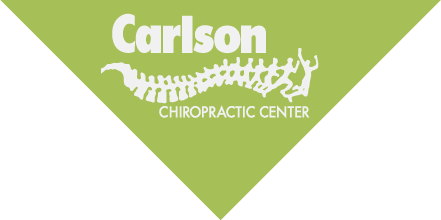Self-care is extremely important. When we don’t pay close attention to the things we are putting into our bodies, it’s easy to fall off track and get stuck with unhealthy habits. Committing to a lifestyle of healthy eating takes time and effort, so we’ve put together a few quick tips to help!
1. Don’t shop hungry
Before heading to the grocery store, be sure to eat something nutritious and drink a big glass of water. When you don’t have to battle a growling stomach, you’ll be less likely to grab sugary snacks from the shelf.
2. Diversify your grocery list
When creating your shopping list, be sure to plan for a variety of healthy meals and snacks. Fill your refrigerator with nutritious options such as vegetables and proteins that can either be combined to make an elaborate meal, heated up as leftovers or grabbed as a snack on your way out the door.
3. Pack healthy snacks
Skip the candy drawer or vending machine, and instead, bring some of your healthy snacks to work with you. If you know you have something nearby to tide you over, you won’t have a reason to waste a dollar on a salty bag of chips or a sugar-filled candy bar.
4. Read labels
Many manufacturers will try and fool customers by using labels such as “organic,” “gluten-free,” or “natural.” Sadly, these descriptions don’t usually mean these food items are good for your body. Learn what the nutrition labels mean and especially keep an on these line items:
- Total added sugars
As a benchmark, a candy bar has about 25g to 35g of sugar, which is way over the recommended daily limit. If the meal bar you purchased does too, it might be time to consider healthier on-the-go options. - Synonyms for sugar
Manufacturers also like to hide their sugar content by using different names for sugar on their ingredients list, usually ending in “-ose.” For example, sucrose and fructose and sucralose. Long story short, “sugar-free” doesn’t always mean free of sugar - Carbohydrates
Be very cautious of prepared carbohydrates like cereals and meal bars. They tend to have very few vitamins and minerals and are packed with sugar. The ratio of high sugar and low protein also means you’ll be hungry again soon. - Total number of ingredients
A good rule of thumb is that food items with fewer ingredients tend of have fewer preservatives and be more wholesome.
5. Understand special diets
- ‘Bad’ nutrients
In our search for better health, we can brand particular nutrients as ‘bad’, even though the body has a use for all of the macro- and micro-nutrients we eat. That includes salt, cholesterol, and saturated fat. Unless your physician has indicated you need to decrease your intake of these compounds, you should not avoid them! Salt is important for fluid balance and nerve and muscle function, and cholesterol is important for brain health and hormone production. - Low-fat and sugar-free
A common misconception is that fat in food will make you gain weight. It’s true that you should avoid cooking with liquid vegetable oils at high heat and avoid trans-fats altogether. However, healthy fats such as coconut and olive oil are good for your skin, hair, nails, and help you make hormones. Unless you are diabetic or pre-diabetic, sugar-free foods should be avoided since they often replace sugar with problematic chemicals.r - Food sensitivities
If you are experiencing digestive distress or persistent skin issues, it might be time to try food sensitivity testing. Many people have a food intolerance or sensitivity of which they are unaware, and discovering this can help lead to healthier digestion, healthier skin and even lifted mood! Register for one of our food sensitivity workshops to learn more.
At the end of the day, try turn cooking and eating into a fun experience, not hard work. Don’t purchase or cook anything you know you won’t enjoy just because it’s healthy. Take joy in your food, in your body, and in the pleasure of leading a healthy lifestyle!

